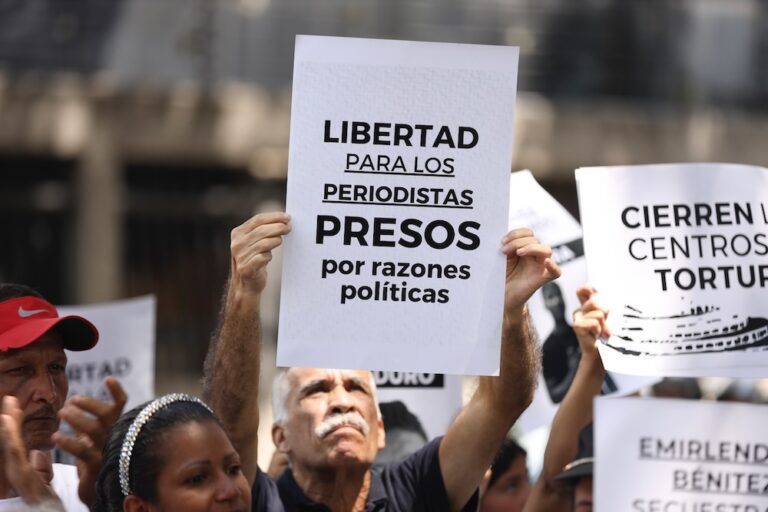(ARTICLE 19/IFEX) – “Deadly Marionettes – State-Sponsored Violence in Africa” is a new report from ARTICLE 19 that details how governments censor the spoken word by employing surrogate agencies, such as ethnic or religious militias, to attack supporters of opposition political parties or critics of the government. This “informal” method of repression enables governments to […]
(ARTICLE 19/IFEX) – “Deadly Marionettes – State-Sponsored
Violence in Africa” is a new report from ARTICLE 19 that details
how governments censor the spoken word by employing surrogate
agencies, such as ethnic or religious militias, to attack
supporters of opposition political parties or critics of the
government. This “informal” method of repression enables
governments to perpetuate the restrictive structures of one-party
rule at a local level, while proclaiming their fidelity to
democratic principles at a national level.
Favouring certain factions in long-standing or latent rivalries,
or even provoking new conflicts, allows governments to evade
responsibility for human rights violations by passing them off as
“ethnic violence” or “tribal clashes”.
The dangers of allowing this method of repression to go
unchallenged is illustrated by the section on Rwanda, where the
genocide in 1994 began as a classic example of informal
repression.
The report points out how state-sponsored communal conflict often
surfaces during a transition from a single-party to multi-party
political system, providing justification for government claims
that political pluralism leads to strife.
Kenya is one example of this: with state connivance, a quarter of
a million people were effectively disenfranchised in 1992 when
they were driven from their homes by warriors from President
Daniel arap Moi’s ethnic group during the first multi-party
elections; similar violence is severely damaging the political
balance in the run-up to this year’s elections.
The report examines the development of informal repression in a
number of African countries, identifying common themes.
Collaboration between governments on mechanisms for informal
repression and the role of the media are also discussed.


